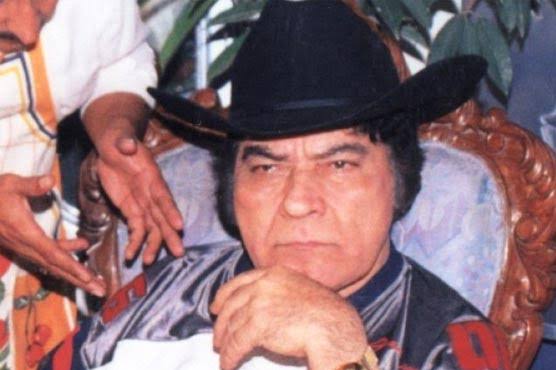Starting as a film billboard painter, he starred in more than three-hundred films in a career spanned over four decades. Today marks his 91st birth anniversary. A comedian, a legend in his own right, and an era on the screen, the one and only, Rangeela.
Born on 2nd January 1937, Rangeela opened his eyes in a Pashtun Family in Nangarhar Province of Afghanistan. He was very young when his family permanently settled in Peshawar, Pakistan.
Originally named “Mohammad Saeed Khan,” Rangeela is amongst the most iconic cinema figures the country has ever produced. Although he was initially more into bodybuilding and physical fitness, it was his migration to Lahore; the country’s cinematic hub at that time, that accidentally made him the most popular comedian of the country.
Most of his fans today mainly remember him for films like Diya Aur Toofan, Dil Aur Duniya, Aurat Raaj, and Insaan Aur Gadha, not many, however, know that it all started off with a small role in a film where he was only to enumerate the names of dishes as a waiter. It was this small role that made him addicted to acting.
The Big Head Over a Short Body
It wasn’t until 1957, however, that he got his big break through a Punjabi film titled, Jatti. Having a peculiar physique that consisted of a large head and a short stature, Rangeela would mostly use his facial expressions to generate laughs.
His slapstick, caricatural brand of postural comedy was the reason why filmmakers would cast Rangeela (along with Munawwar Zarif and Nanha) in their films. Their performances would provide comic relief in their otherwise serious films. The formulae was employed extensively by filmmakers across Lollywood (and even Bollywood) till late 90s.
It was not just comedy though that Rangeela was known for. He made some iconic films that were not only offbeat from the norm but also way ahead of their times. After directing and producing hit films like Diya Aur Toofan and Dil Aur Duniya, he gave some more iconic and thought-provoking films like Aurat Raaj (directed, produced, and acted) and Insaan Aur Gadha (acted).
James Dean of Pakistan
Notable cultural critic and journalist, Nadeem Farooq Paracha, in one of his essays “Who is the James Dean of Pakistan and India” notes Rangeela as the first hero that has shades of Pakistani cinema’s first angry young man, for his film Insaan Aur Gadha (1973) and Aurat Raaj (1979).
Insaan Aur Gadha was noted for having a protagonist that was more of an anti-hero than the usual “Good for everything” heroes the cinema was used to. The film showed a donkey which turns into a man after its prayers are answered by God. However, seeing the plight of humans in various events he wishes to be a donkey again, shortly after.
The iconic scene where Rangeela’s character addresses a gathering of donkey landed the film in hot waters and the Bhutto regime sought a ban on the film as it thought the film satirized ZA Bhutto for his populist rhetoric.
Aurat Raaj, on the other hand, is considered Pakistan’s first feminist film which targeted the country’s male-dominated society. Starring Raani, Waheed Murad and Sultan Rahi, the film shows a neglected wife of an aggressive and narcissist husband, who stands for herself and all the women of her area via a movement.
This dramatically ends up making Rani a political leader and ultimately the prime minister who then procures a special Bomb from abroad which, when exploded, turns all men into women. What follows is a laughter riot and some unapologetic feminist themes that the film explores.
Aurat Raaj couldn’t, however, work on box office because it was way ahead of its time. Later, the film would go on to attain a cult classic status in the ensuing years.
Modern Inspirations from Rangeela’s Work
Rangeela’s work has extensively inspired artists of current era ranging from pop singers to animated films. Fakhir’s hit rendition of “Sub Tu Soniye” was originally created for Rangeela and Nisho Starrer, Kubra Ashiq. The film itself was the Pakistani version of Anthony Quinn’s 1956 Hollywood epic, The Hunchback of Notre Dame.
Pakistan’s biggest animated grosser, The Donkey King, also has themes and dialogues copied from Insaan Aur Gadha. Especially from the scene where Rangeela’s character addresses donkeys in his film.
Similarly, Mahira and Shehryar Munawwar starrer, 7 Din Mohabbat In, has a sequence where a female protagonist uses “Niswani Jhatka” explosion to turn males into females. This seems inspired by the plot of Aurat Raaj.
His song “Ik Husn Ki Devi” was recreated multiple times by modern-day artists often with corporate collaborations.
Winning countless awards and a Pride of Performance in 2005, Rangeela died the same year due to cardiac arrest secondary to the complications of liver failure. He would always be remembered with utmost regard whenever Pakistani cinema would come under discussion. May his soul rest in peace.




